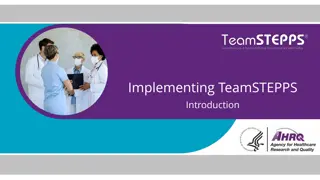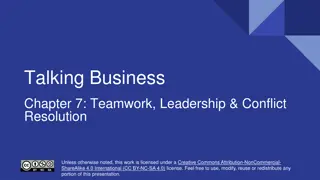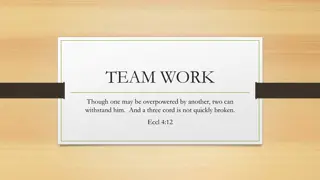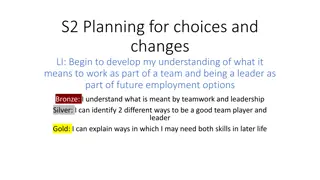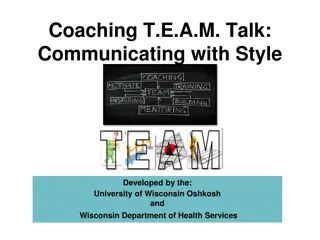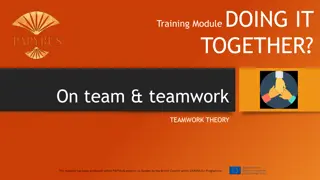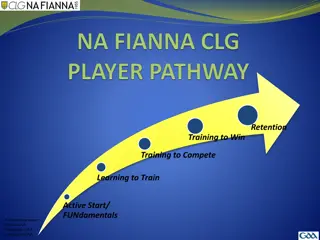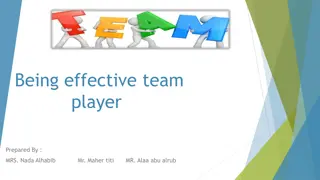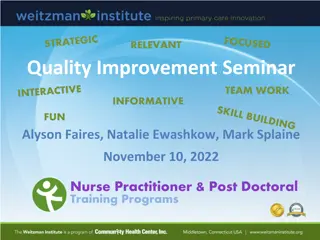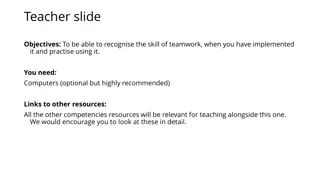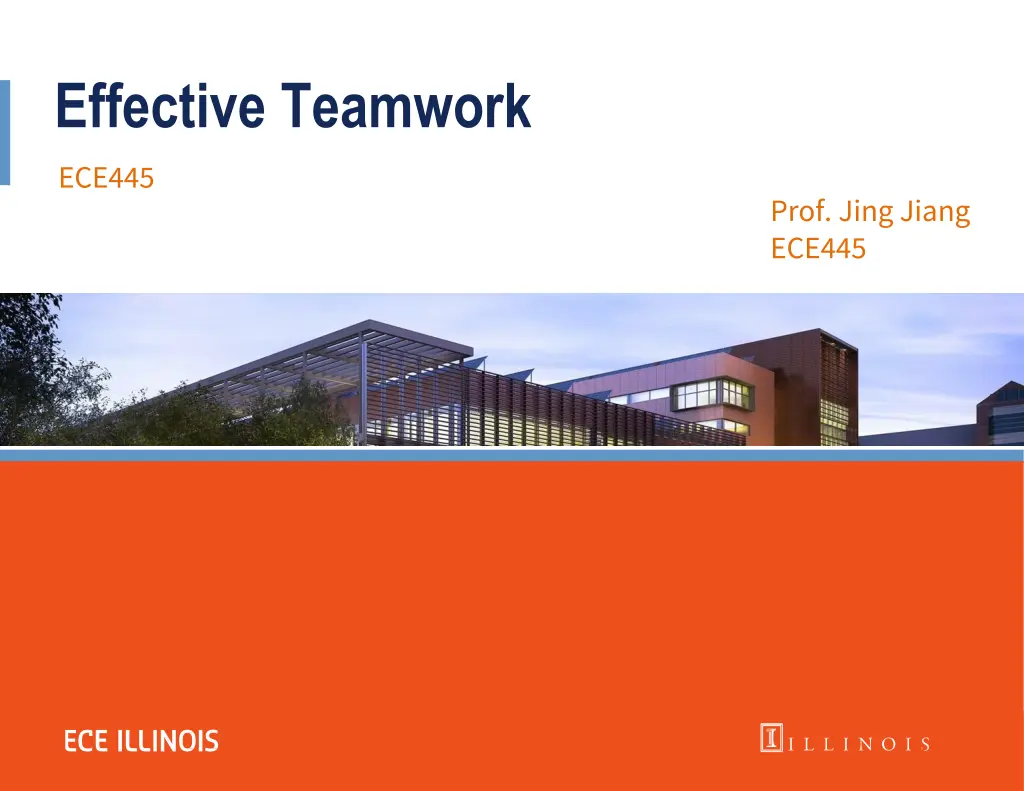
Effective Teamwork Strategies for Better Collaboration
Learn about common complaints in teamwork and why they arise, along with practical solutions to enhance collaboration. Explore the importance of understanding each other's goals, strengths, and expectations for a more productive team dynamic.
Download Presentation

Please find below an Image/Link to download the presentation.
The content on the website is provided AS IS for your information and personal use only. It may not be sold, licensed, or shared on other websites without obtaining consent from the author. If you encounter any issues during the download, it is possible that the publisher has removed the file from their server.
You are allowed to download the files provided on this website for personal or commercial use, subject to the condition that they are used lawfully. All files are the property of their respective owners.
The content on the website is provided AS IS for your information and personal use only. It may not be sold, licensed, or shared on other websites without obtaining consent from the author.
E N D
Presentation Transcript
Effective Teamwork ECE445 Prof. Jing Jiang ECE445
About teamwork - Complaints Student s responses: o Time coordination and constraint o Distribute responsibilities o Hard to reach consensus o Drop w/o heads-up o Got bossed around Online search: ref: https://www.apm.org.uk/blog/10-common-problems-project-teams-face/ o Lack of trust, Conflict and tension, Not sharing information o Low engagement, Lack of transparency, Working in silos o Not going in the same direction, Poor change management
About teamwork Why complaining? Lack of communication (effect) Lack of understanding each other (effect) Assuming others know what you know (cause): knowledge, etc. Assuming others want what you want (cause): grade, etc. Assuming others know all things about yourself (cause): personality, time constraints, etc. Assuming others would do things as you do (cause): Early bird/procrastinate, explain slowly/jump into useful conclusion Weak execution (effect) Lack of executable items (cause) Assuming (cause)
Look at this graph Problem space People from different backgrounds Group decision What you know Optimal decision
Look at this graph Stop assuming! Problem space People from different backgrounds Group decision What you know Optimal decision
Look at this graph Stop assuming! Problem space People from different backgrounds Root cause the effects, solve the underlying problems! Group decision What you know Optimal decision
Solution: Part 1, Understand each other Introduction of Yourself: Declaring Goals and Expectations at the First Meeting 1) Responsibilities that I have are: (other commitments) a) Personal b) Professional 2) Some of my interests are: 3) The strengths I bring to this team are: 4) What I would like my team members to know about me is: 5) What I would like to gain from this team experience is: 6) Some of the expectations I have regarding my team members are: 7) What letter grade I expect to get Share with each other only after all members finish individually! For higher efficiency, finish these before your first meeting.
Solution: Part 2, Team contract Minimum issues Team Contract should address 1. How will you communicate about process and outcomes? When to meet, how to share information, penalty for being late or skipping meetings. 2. How will you assign workload? Rotating project leaders or other ways giving equal responsibility; what is considered as fair participation and free riding; How to deal with important family obligations or critical deadlines at work, COVID-19. 3. Work vs Classes, and what will be your approach to DDLs? Internal DDLs? 4. What will be your method for airing and resolving disagreements? 5. What is your specified level of quality for deliverables? How will your group determine when "good enough" is, indeed, good enough? 6. What procedure will your study team follow if a member does not live up to the expectations of the contract? What commitment do you expect from each other to working toward resolution? 7. What level of confidentiality about team issues do you expect from each other?
Solution: Part 3, Clear expectation and communication Weekly (TA) meeting o Key to having a successful project o Review weekly progress EACH member says this: Since last meeting, I have done _______ Before next meeting, I plan to accomplish ______ My current blocks & issues are _______ On schedule? Need to modify approach? o Get technical help with project (TA meeting) If you don t ask for help, you won t get it. TAs can advise you as much as they could. You are responsible for yourselves. Knowing who to ask is also important o Review notebooks (TA meeting) TA signs and dates the latest notebook entry o Email TA or Prof when problems occur - don t wait until meeting
Solution: Part 3, Clear expectation and communication Meetings notes suggestions o o o o Meeting organizer: Project leader Note down topic in title: easy to review Set up your goals, stay focused. Discussion items: Plan your time, take notes. about *** topic o Action list: o @Who will do What by When. o Everyone should review and agree on! o How to make sure the assignee really understand the expectations?
Solution: Part 3, Clear expectation and communication Meetings notes suggestions o o o o Meeting organizer: Project leader Note down topic in title: easy to review Set up your goals, stay focused. Discussion items: Plan your time, take notes. about *** topic o Action list: o @Who will do What by When. o Everyone should review and agree on! o How to make sure the assignee really understand the expectations? Ask for rephrasing
Last hint If something went wrong, blame yourself! (Each of us)
Last hint If something went wrong, blame yourself! (Each of us)
Last hint If something went wrong, blame yourself! (Each of us) Putting yourselves into others shoes, love your teammates as yourself.
Last hint If something went wrong, blame yourself! (Each of us) Putting yourselves into others shoes, love your teammates as yourself. Good luck!


